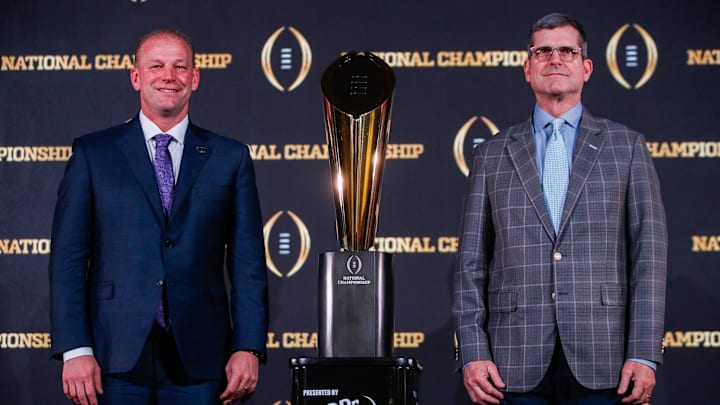The people who run college football are meeting this week in Dallas. Maybe more accurately stated is the group most able to decide much of college football's future is meeting. No one group 'runs' college football. Certainly, the NCAA does not control college football any longer, though the organization may think it still does.
What does 'run' college football is money and to that extent, media partners have much to say about what the future holds. Close to being finalized is an offer from ESPN to extend its deal with the CFB Playoff for six additional seasons. The reported payoff totals $7.8B, at 1.3B per year. For such considerable cash, ESPN demands the CFP Board of Managers and the conference commissioners (plus Notre Dame) come to terms with format issues and settle any other disputes that could hinder the deal.
The CFP managers and commissioners have a history of struggles to resolve their internal conflicts. Could they muddle around again and risk ESPN walking away from the deal? Wisely the SEC and the Big Ten are aligned to protect the interests of college football's 'Power Two.'
Consider the potential of a split by the SEC and the Big Ten, as explained by a quartet of The Athletic's reporters.
"Would the Big Ten and SEC, having newly formed a joint advisory group to “take a leadership role in developing solutions for a sustainable future of college sports,” push for more autonomy and/or more control of the enterprise?"The Athletic
College Football Playoff Management
On Tuesday and Wednesday in Dallas, the CFP Board of Managers and the CFP Manage Committee (commissioners) should resolve the format for 2024 and 2025. The decision requires a unanimous vote. The expected conclusion is a 5+7 format, with five auto qualifiers and seven at-large teams. Disputes over revenue distribution to Washington State and Oregon State are a stumbling block.
Votes on the 2026 CFB Playoff and beyond do not require unanimity. Given most of the value of the CFP product comes from the brands of SEC and Big Ten programs, the two conferences could push for and attain more change. Perhaps not likely, but possible is that the SEC's Greg Sankey and the Big Ten's Tony Petitti have the leverage to have a 2026 and beyond, 16-team format with no automatic qualifiers.
What happens this week in Dallas may explain why the SEC and the B1G decided to publicly disclose the two conferences have mutual interests.
UPDATE: New format adopted
CFP presidents adopted today the long-expected move to change the 12-team format from 6+6 to 5+7.
— Ross Dellenger (@RossDellenger) February 20, 2024
The change, for 2024 & 2025, adds an at-large spot and decreases the AQs from 6 to 5 in light of the Pac-12 realignment situation.
